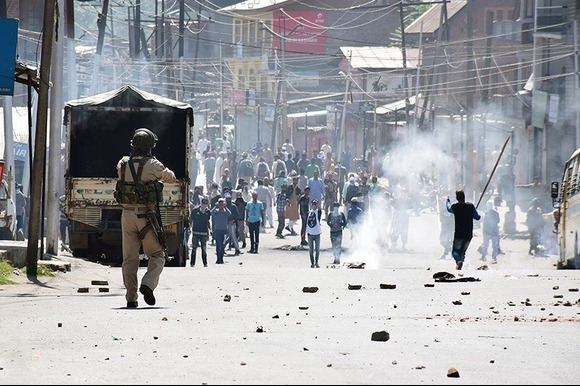Tensions between India and Pakistan have flared once again, reviving fears of broader conflict in one of the world’s most volatile regions — Kashmir. But what lies at the heart of this decades-old dispute, and why does it continue to endanger peace in South Asia?
A Conflict Rooted in Partition
The seeds of the Kashmir conflict were sown in 1947 when British India was divided into the two nations of India and Pakistan. Under the Indian Independence Act, princely states were given the choice to join either country. Kashmir, a Muslim-majority region ruled by a Hindu monarch, Maharaja Hari Singh, found itself at a crossroads.
Initially seeking independence, the maharaja soon found his hand forced when tribesmen from Pakistan invaded in October 1947. In response, he signed the Instrument of Accession to India in exchange for military assistance. This ignited the First Indo-Pak War.
A United Nations-mediated ceasefire in 1949 led to the division of the region along a ceasefire line — now known as the Line of Control (LoC) — with India and Pakistan administering different parts of Kashmir. A plebiscite, recommended by the UN to determine the region’s final status, has never been held due to a lack of agreement on demilitarisation terms.
Repeated Clashes and Nuclear Backdrop
The territorial divide has since sparked multiple conflicts. The Second Indo-Pak War in 1965 and the Kargil conflict in 1999 further cemented the animosity, the latter taking place after both nations had declared themselves nuclear powers.
Today, India and Pakistan both claim the region in full but control only parts of it. The Indian-administered side includes the union territories of Jammu and Kashmir and Ladakh, while Pakistan controls Azad Kashmir and Gilgit-Baltistan.
Unrest in Indian-Administered Kashmir
Indian-administered Kashmir has long been restive. Since 1989, an armed insurgency has challenged Indian rule, with thousands of lives lost over the decades. Many in the region advocate for independence or reunification with Pakistan, while others seek a return to the semi-autonomous status that was stripped away in 2019.
Religion plays a key role in this dynamic — Indian-administered Kashmir is over 60% Muslim, making it the only Muslim-majority region in India.
New Delhi accuses Islamabad of providing material and ideological support to militants — a claim Pakistan denies, insisting it only offers moral backing to what it calls a legitimate freedom struggle.
Flashpoints and Escalations
High-profile attacks have frequently pushed the two countries to the brink. In 2016, India responded to the killing of 19 soldiers in Uri with “surgical strikes” across the LoC. In 2019, a suicide bombing in Pulwama that killed over 40 Indian paramilitary personnel led to airstrikes on Balakot — the first Indian strikes inside Pakistan since the 1971 war.
Most recently, in April 2025, militants killed 26 tourists in Pahalgam, the deadliest attack on civilians in decades. Two weeks later, India retaliated with missile strikes targeting alleged militant bases in Pakistan and Pakistan-administered Kashmir. In response, Pakistan claimed to have shot down Indian drones and aircraft, raising the specter of full-scale war.
One of the World’s Most Heavily Militarized Regions
Kashmir remains among the most militarized regions on the planet, with hundreds of thousands of troops stationed along both sides of the LoC. Civilians frequently bear the brunt of cross-border skirmishes, militant attacks, and harsh crackdowns by security forces.
While violence has fluctuated over the years, long-term peace remains elusive.
What Happened to Peace Talks?
In 2003, India and Pakistan agreed to a ceasefire that significantly reduced hostilities. Hopes for lasting peace were briefly rekindled in 2014 when Pakistani Prime Minister Nawaz Sharif attended the inauguration of Indian Prime Minister Narendra Modi in Delhi. But relations soured quickly.
A 2016 militant attack on India’s Pathankot airbase was blamed on Pakistan-based groups. Since then, diplomatic efforts have largely stalled. Modi canceled a key visit to Islamabad in 2017, and there has been no substantial progress toward negotiations since.






